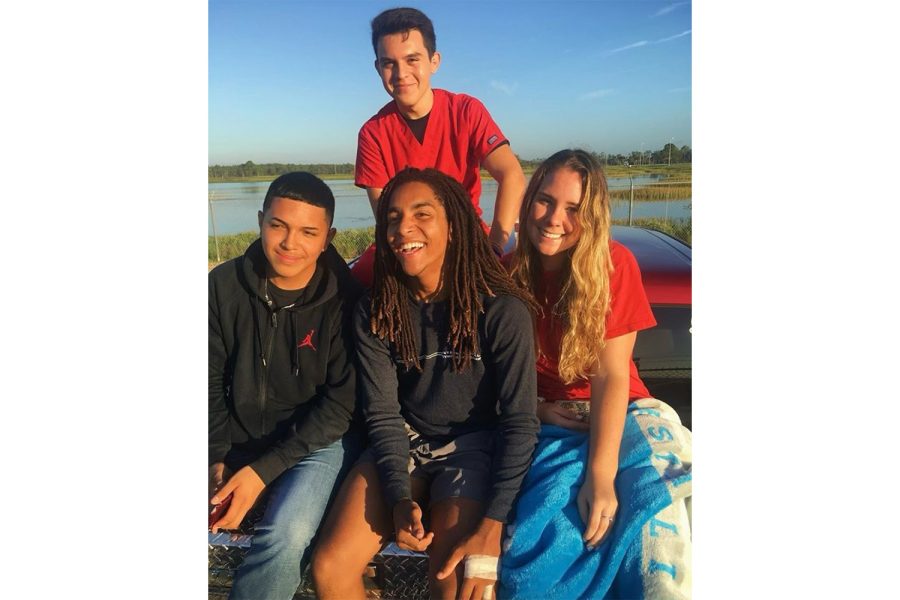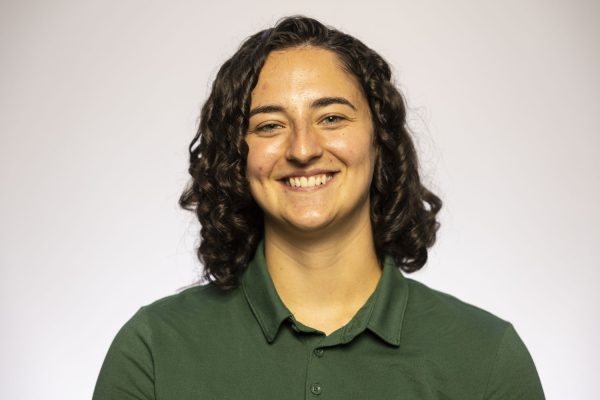Students find ways to cope and support families after Hurricane Ian
Hurricane Ian left a path of power outages, destruction, and casualties in its wake, leaving UI students from Florida to cope with the aftermath from afar.
October 9, 2022
Following the devastation of Hurricane Ian, University of Iowa students from Florida have been dealing with the aftermath by supporting their families from afar.
Hurricane Ian touched down in Florida and the Gulf Coast on Sept. 28, leaving power outages, severe property damage, and injuries and deaths in its wake. The hurricane also affected areas in North and South Carolina and Cuba.
At its worst, Hurricane Ian sustained winds greater than 150 mph. Many homes and businesses in affected areas are still experiencing power outages.
UI first-year student Kylie James said her family owns a condominium in Florida, and her grandmother lives in a retirement home near Fort Myers. While her grandmother did not need to evacuate, James said she has been struggling with the impact of the hurricane.
“I know from my grandma’s perspective she’s really depressed about the whole situation,” James said. “It’s going to take years to fix everything, and she feels guilty for being okay and having her home when other people don’t have anything right now.”
James said the condominium her family owns, located on Sanibel Island, had over 12 feet of water on the first floor.
“It’s really sad to see a place that I would go to that often kind of fall apart,” James said. “And I feel horrible for everyone that lives there.”
Dakari Harleston, a UI fourth-year student, lived in Fort Myers since he was 11 years old and has family that lives there.
Harleston said it was difficult for him to be in Iowa while his family remained in Florida.
“My parents and my entire family lost service, so I couldn’t get in contact with them for like 18 to 24 hours,” Harleston said. “So that kind of really messed me up until I was finally able to call my brother.”
While his family members and their property are okay, Harleston said the same cannot be said for the city.
“The entire city — like 10 minutes from my house, like downtown — was flooded and stores are destroyed, things like that,” Harleston said. “The same thing with Fort Myers Beach; it’s like gone, and it’s a really weird and surreal feeling to see all of the destruction.”
Harleston said he has coped by finding other UI students from Florida and using Facebook groups to assist devastated families through donations and spreading the word.
RELATED: Opinion | Make Puerto Rico a state
Kelly Clougher, the UI Counseling Service associate director for outreach services and embedded programs, said the service and the Student Care and Assistance Office have sent emails to UI students from Florida expressing their condolences and making them aware of the mental health services available.
“We also prioritize students who may call to schedule an appointment if they were to have said that they were impacted by the hurricane,” Clougher said. “And then aside from that, we have our clinical services that students are able to access as needed, or if they’re in individual therapy or group therapy, they can bring it to that space.”
Students coping with Hurricane Ian need to know that it’s okay to feel emotions, make sure they are tending to their bodies’ needs, ask for help, and engage in coping strategies that work for them, Clougher said.
Clougher also wants students to know that the Substance Abuse and Mental Health Services Administration has a toll free 24/7 crisis support center available at 1-800-985-5990 for those who have undergone a natural disaster.
“Although we are here for our students who are struggling, there are other ways, too, that they can ask for help,” she said. “Many of our students have good networks of family and friends as well as other offices on campus that could offer support, like Student Care and Assistance.”















